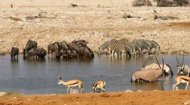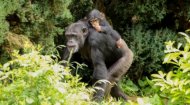
|
|
|
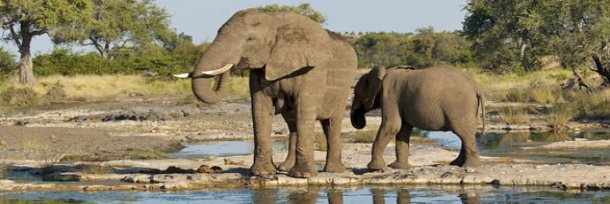
Female elephants, "cows", tend to live in groups of ten and up led by an older elephant whilst males prefer to live on their own after reaching puberty at around 14yrs though spending some time with other "bulls". After mating, gestation is 22 months. Females give birth to calves one every few years during their most fertile years (25-45yrs) and at birth these calves are already 3ft tall, weighing 200 lbs. They are looked after by the female group who all learn parenting skills! Like humans, dolphins and apes, elephants are intelligent creatures with a brain as structured and complex as a human one. Certainly they have demonstrated evidence of play, humour, self-awareness, memory, language and grief. They communicate using their ears as expressions but also by 'rumbling'; the emitting of low octave sounds below human hearing range which can be heard from up to six miles away. Whilst the elephant does not have any animal predators not least because its the world's largest mammal, although lions may prey on the young or weak, their greatest threat is from man who poaches them for their ivory tusks and alleged global warming which is threatening to heat up their natural habitats leading to poorer foraging conditions. There were some 3-5 million elephants across Africa last century, however the loss of 100,000 each year to hunting prior to the imposition of an international ban on ivory trading from 1990 has seen their population decline with the African elephant now being classified a 'threatened species.' It is currently estimated there are 450,000 - 700,000 elephants in Africa and illegal poaching continues. Now check out our LIVE elephant webcam broadcasting from Tembe National Park in South Africa here and consider adopting an elephant to help protect the species using our link above. |


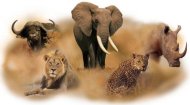
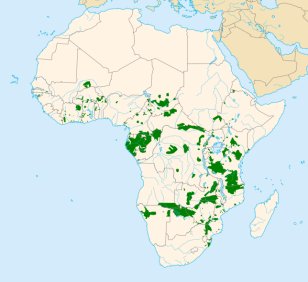 For obvious reasons, elephants are closely associated with their 6ft long 309lb trunks, a fifth 'limb' that contains some 100,000 muscles ~ but no bones ~ that has two small opposable "fingers" at its end which are used to control small objects. The trunk is used for breathing and smelling just like a human nose, but also for drinking, trumpeting and grabbing objects as well as being used as a weapon and as part of the elephant's mating ritual.
For obvious reasons, elephants are closely associated with their 6ft long 309lb trunks, a fifth 'limb' that contains some 100,000 muscles ~ but no bones ~ that has two small opposable "fingers" at its end which are used to control small objects. The trunk is used for breathing and smelling just like a human nose, but also for drinking, trumpeting and grabbing objects as well as being used as a weapon and as part of the elephant's mating ritual.